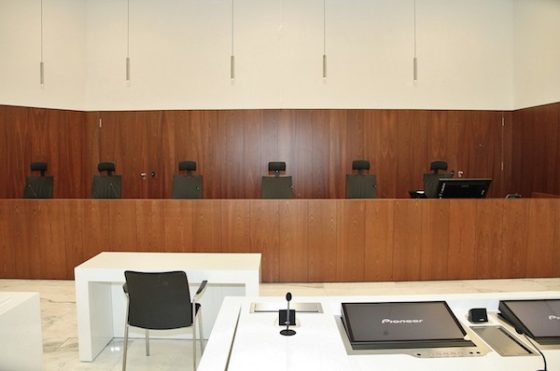Partner content
Family law proceedings in the Netherlands: a brief explanation

Many people find themselves unsure about what to expect when involved in a legal case relating to divorce, child custody or alimony. Antoine de Werd, co-founder of GMW lawyers, outlines the basic procedures followed in family law in the Netherlands, what to expect in court, and when alternatives to litigation might be possible.
How does family law work in the Netherlands?
Family law cases in the Netherlands are handled initially by the district court. There are 11 such courts nationwide. In general, the court with jurisdiction is the one in the district where the applicant — the person filing the request — lives.
If one of the parties disagrees with the court’s decision, they can appeal to one of four courts of appeal, located in Amsterdam, The Hague, Arnhem-Leeuwarden and Den Bosch. The deadline for filing an appeal is usually three months.
A further appeal to the Supreme Court of the Netherlands in The Hague is only possible in limited circumstances — typically if a legal error has occurred. The Supreme Court serves as the country’s highest judicial body for civil, criminal and tax matters.
What does a family law case look like?
The procedure usually starts with a petition from one of the parties, which has to be filed by a lawyer. The other party (the defendant) can respond in writing, usually within six weeks, and file a counterclaim if desired.
Usually, documents can be submitted up to 10 days before a hearing. After the written documents have been submitted, the case is heard in court, which may take several months to take place.

Both parties appear at the hearing with their lawyers and the hearing usually takes 30 to 90 minutes. During the hearing, the lawyers present their clients’ positions and the judge asks questions. While there is no legal obligation for the parties to attend the hearing, experience shows that judges generally view a party’s absence without a valid reason unfavourable.
Most family cases are heard by a single judge, supported by a court clerk. However, if the case is particularly complex or wide-ranging, it may be assigned to a panel of three judges. Hearings are held behind closed doors. No members of the public are permitted to attend, in order to protect the privacy of those involved.
In matters concerning children, the Child Protection Board may be present to provide an independent assessment and recommendations to the court.
What does the judge do and not do?
Judges are required to act impartially and base their decisions strictly on the law and the information presented in the case. Some judges take a more active role in the hearing, asking detailed questions or exploring possible outcomes. Others focus on listening to the legal arguments. A judge’s position is almost always professional and objective.
Lawyers speak on behalf of their clients, but it is common for the judge to direct questions to the parties themselves so it is important to be well prepared.
At the end of the hearing, the judge may give both parties a brief opportunity to speak. The final ruling is usually issued within four to six weeks of the hearing.
Judges do not issue moral judgments or determine who was “right” or “wrong” in the relationship. Personal disputes or accusations are generally not relevant to the court, unless they affect the well-being of any children involved.
The court’s task is to provide a legally sound and practical resolution, not to apportion blame or impose penalties.
Is it always necessary to go to court?
A dispute does not necessarily have to be resolved by a judge. Disputes can be resolved through consultation, mediation, collaborative divorce and arbitration.
The agreed terms are recorded in a contract or divorce settlement. In divorce proceedings, it is advisable to incorporate the agreement into the court’s ruling. Even if the parties have agreed on the terms of their divorce settlement, a formal court ruling is always required to legally dissolve the marriage.
In some cases a divorce can be settled very quickly. If all the terms are agreed in advance, the lawyers may submit a joint petition to the court, with the divorce agreement attached. In such cases, the court can finalise the divorce without a hearing. This route is usually faster – four to six weeks – and more affordable than a contested court case.
The legal procedures described here are general and may vary depending on the facts of a particular case. Anyone involved in a family law matter is strongly advised to seek professional legal advice.The specialised family law attorneys at GMW lawyers will be happy to assist you.
Thank you for donating to DutchNews.nl.
We could not provide the Dutch News service, and keep it free of charge, without the generous support of our readers. Your donations allow us to report on issues you tell us matter, and provide you with a summary of the most important Dutch news each day.
Make a donation